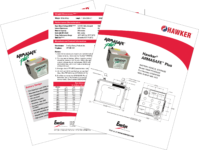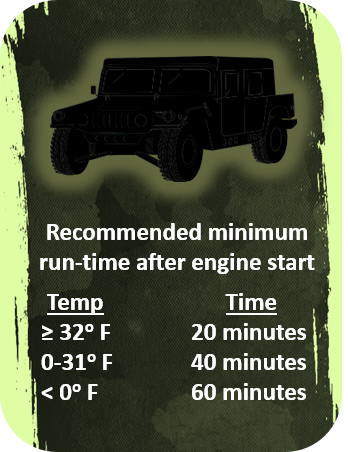Hawker Headlines
Summer 2020 edition
Quick Tips!


Easy fix. In fact, the new & improved data sheet and
2D technical drawings brochures are hot off the press!
Want your copy? Simply download here...
Resources
Answer to question from last issue:

Can multiple short-duration vehicle run-times have an effect my battery?
Yes! You see…for the vehicle’s starter to crank the engine, it requires energy…lots of energy. That burst of energy comes from the vehicle’s battery (or batteries). In fact, engine start requires so much energy, typically, it’s the biggest load placed on a battery (or battery pack).
For example, a light tactical vehicle may require 500 Cold Cranking Amps (CCAs) to start the engine, whereas a heavy combat vehicle may require 2000 CCAs! Now that’s a whole lotta juice.
Each time the engine is started, the battery is drained a bit. No problem, it’s the job of the vehicle’s alternator or generator (& voltage regulator) to safely put that energy back into the battery.
But, if the engine is constantly started, then immediately stopped, the alternator won’t have enough time to fully recharge the battery. So, how long should you let the vehicle run to replenish the energy? Check out our guide.
Did you know?

for a single battery, Closed Circuit Voltage (CCV), commonly known as “load” voltage, is the measurement of voltage between its positive and negative terminals when there is a load on the battery (in other words, the battery is providing power). For battery-powered systems (direct current), measurement is usually conducted using either a DC voltmeter or multimeter with a DC voltmeter setting. A battery’s CCV measurement is typically lower than it’s OCV.
Training:

Though the world is still coping with COVID-19, our free on-site Battery Maintenance and Recovery Training (BMRT) is back! And, to assist in maintaining a safe working environment, our trainers comply with all state & local safety protocols. Want to get your unit scheduled? Just contact your Hawker® FSR today…either on the web or by phone!

